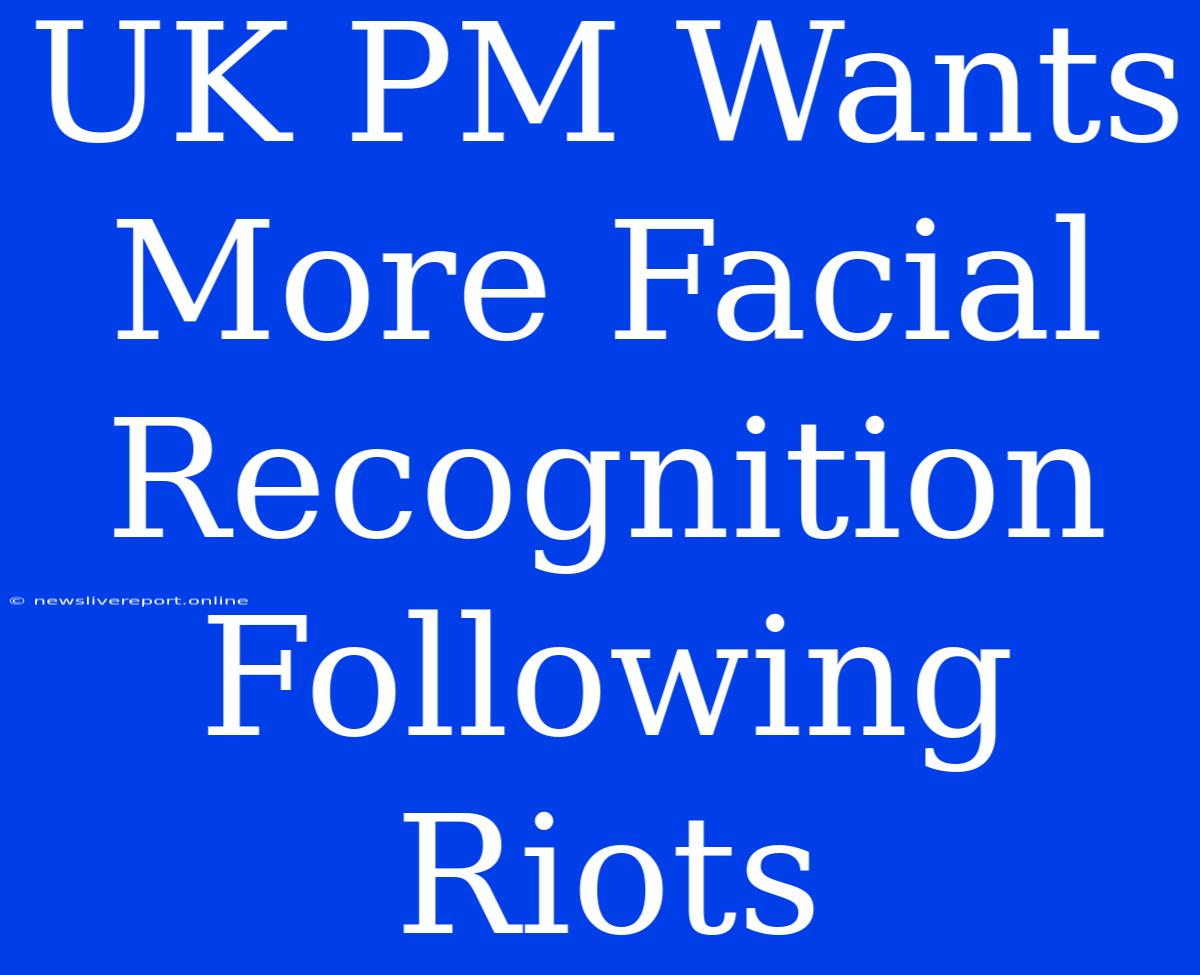UK PM Wants More Facial Recognition Following Riots: A Slippery Slope or Necessary Tool?
The recent riots in the UK have sparked a debate about security measures, with Prime Minister Rishi Sunak advocating for increased use of facial recognition technology. This has ignited a heated discussion, with proponents highlighting its potential for crime prevention and opponents voicing concerns about privacy and civil liberties.
The Case for Enhanced Facial Recognition:
- Crime Prevention: Sunak argues that facial recognition can be a powerful tool for identifying and apprehending criminals, potentially preventing future incidents like the recent riots. Proponents point to successful implementations in other countries where the technology has helped reduce crime rates.
- Swift Identification: Facial recognition can rapidly identify individuals in large crowds, enabling authorities to focus their resources and react quickly to potential threats. This could be especially useful in situations like riots or terrorist attacks.
- Enhanced Security: In high-security areas like airports and public transport hubs, facial recognition can help verify identities and prevent unauthorized entry, enhancing overall security.
The Concerns About Privacy and Civil Liberties:
- Mass Surveillance: Opponents argue that widespread use of facial recognition can lead to mass surveillance, eroding privacy and creating a chilling effect on free speech and assembly. The potential for misidentification and false positives raises concerns about wrongful arrests and damage to reputations.
- Discrimination: Studies have shown that facial recognition algorithms are more likely to misidentify people of color, raising concerns about racial bias and discrimination. This raises questions about the technology's fairness and equitable application.
- Erosion of Freedoms: The constant monitoring of individuals in public spaces raises concerns about the erosion of fundamental freedoms like freedom of movement and association. Critics argue that such technology can be used to suppress dissent and limit public expression.
The Way Forward:
The debate over facial recognition in the UK is far from over. A balanced approach is needed, one that prioritizes security while safeguarding privacy and civil liberties. This could involve:
- Strict Regulations: Implementing clear regulations governing data collection, storage, and use of facial recognition data, ensuring transparency and accountability.
- Independent Oversight: Establishing an independent body to oversee the use of facial recognition, monitor its impact, and ensure compliance with ethical guidelines.
- Public Education: Engaging the public in a meaningful dialogue about the technology, educating them about its potential benefits and risks, and seeking their input on how it should be deployed.
Ultimately, the decision about how to use facial recognition technology in the UK will require careful consideration of its potential benefits and risks. Striking a balance between security and privacy is crucial to ensure that the technology serves the public good without undermining fundamental rights.

